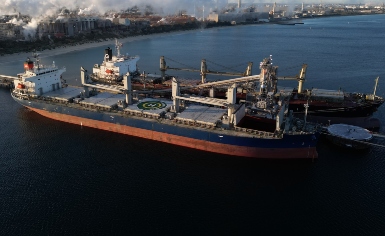 The National Transportation Safety Board (NTSB) has published its Safer Seas Digest 2022. In the digest, NTSB highlights the most important lessons learned from 29 maritime tragedies that took place in 2022. Safer Seas Digest 2022 details the lessons learned from these maritime tragedies involving capsizings, contact, collisions, fires, flooding and groundings.
The National Transportation Safety Board (NTSB) has published its Safer Seas Digest 2022. In the digest, NTSB highlights the most important lessons learned from 29 maritime tragedies that took place in 2022. Safer Seas Digest 2022 details the lessons learned from these maritime tragedies involving capsizings, contact, collisions, fires, flooding and groundings.
Among the investigations, two of the casualties described, the Emmy Rose and the SEACOR Power, led to the loss of human life. The NTSB investigations into these tragedies once again revealed the critical importance of personal locator beacons (PLBs) for seafarers. Continue reading “Safer Seas Digest 2022 published by the NTSB”










